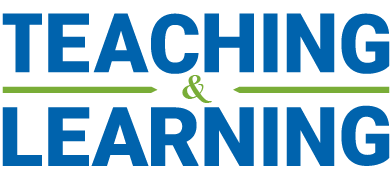As we enter 2021, we continue to deliver our courses remotely in light of the ongoing pandemic. This has been a challenging time for us all and we recognize the difficulties of working in isolation to deliver your online courses especially whilst balancing family and childcare responsibilities in the face of a new enforced lockdown. We want to take this opportunity to not only thank you for your commitment and dedication to Schulich but also to emphasize that you are not alone in your role as instructor. This is a time for collaboration and the Schulich CITE office is very much at your disposal to assist and guide delivery of your online course and assessments.
Over the last semester, we noted that students really value engagement during their online learning so please continue to use the variety of resources listed below to facilitate this. We also noted an increase in academic honesty cases. Therefore, we kindly ask you to ensure your assessments and exams meet academic integrity standards and do not encourage collusion.
As you gear up for the Winter term, please take a few minutes to read through the contents below. You will find details about ways the CITE office can assist with your course design and assessments along with other resources available to you.
1. Instructional Design for Developing Courses and Assessments
For assistance with any of the items mentioned below, please contact the CITE office at cite@schulich.yoku.ca at the earliest possible time to get the most benefit.
- Online course design and maximizing achievement of the course learning outcomes in a virtual environment
- Content creation and best practices for translating in-person class materials into both synchronous and asynchronous online formats
- Canvas course set up
- Making use of Canvas, Zoom, and Echo360 features (i.e. modules, quizzes, assignments, breakout rooms, etc.) in addition to other useful platforms and learning tools for increasing student engagement
- Conducting trial runs of new designs and features and obtaining a student perspective on course design
- Enhancing audio/visual quality in recorded lectures
- Setting up your assessment to help maintain academic integrity standards
- Importing content including videos, asynchronous activities, quizzes and exams into Canvas
2. Online Training Materials & Resources
Both Schulich and York have a wide variety of online materials to assist with the transition to remote/online delivery:
- Schulich Teaching & Learning website: This site offers a wide range of posts featuring teaching and assessment tips from Schulich faculty, a portfolio of online teaching platforms and tools, a showcase of innovative instructors and courses, and innovative applications of technology by our instructors.
- Schulich Online Course Design Guide: This guide is designed to help instructors prepare their courses for remote/online delivery. Browse the course design checklist by category to review important design standards, tips and considerations for creating an effective online learning environment. The guide will be updated with more examples, faculty tips, links and resources on an ongoing basis.
- Academic Honesty: This site offers a range of policies, guidelines, and procedures to assist with academic integrity in your course and spotting academic honesty issues. For assistance with reviewing and redesigning course assessments to minimize potential infractions as well as discuss related course and community building tips and tools (i.e.: Turnitin), please contact the CITE office at cite@schulich.yoku.ca.
- SCTE Webinars: These sessions have covered topics such as “Synchronous vs. Asynchronous Delivery: When, Why and How?”, “Keeping Your Zoom Lecture Lively and Managing Online Student Presentations”, and “Preparing Your ‘Home Studio’ to Present Effectively and Professionally”. Review the summary of the sessions and the tips provided. Dates and times of upcoming sessions can be found on the Events page of the Schulich T&L site.
- CITE’s Teaching Online Training Sessions: Topics range from how to use Canvas and Zoom, to preparing and recording lecture content, to how to make use of specific functionality like Canvas’ Speedgrader and Zoom’s online breakout rooms. Recorded versions of all sessions, as well as guides and working examples of learning tools are available on the Learning Tools Support page in Canvas. Supporting slides, examples and how to guides are available on the Online Course Delivery Guide.
- York Teaching Commons Going Remote website: This site has been designed to provide teaching support based on the kind of needs you have for your courses, your circumstances, and the needs of your students. To get started, view a short video overview of what to expect when teaching and learning remotely.
- YorkU guide to Teaching Remotely: This guide has been developed to assist you in the design and development of online and remote course delivery. Whether designing a course from scratch or modifying an existing course into an online environment, instructors will find some useful recommendations, ideas, information, and strategies to help along the way. This guide accompanies the Teaching Commons’ Going Remote website where a whole host of tools and resources are provided.
- Teaching Commons webinars: As part of the Teaching Commons’ support for remote teaching, it is offering a weekly webinar series, where York faculty members with experience in online teaching and learning share their expertise with the community. Check out the calendar of upcoming events and recordings of past sessions in the link above. You may also wish to revisit Cameron Graham’s very informative session on Maximizing Student Engagement in a Remote Classroom.
3. Virtual Peer Mentor Support
Learning directly from experienced faculty members can be a quick way to get up to speed on successful remote/online course delivery methods. If you are interested in being paired with another faculty member for support, or in offering your expertise to other instructors, please contact ada@schulich.yorku.ca and the ADA Office will help facilitate the partnerships. Possible support mechanisms include sitting in on a live class to get a sense of delivery format and tips and tricks for managing synchronous sessions, browsing course set-ups, asynchronous materials and assessment design in Canvas, or having one-on-one chat to ask questions and learn more about what works and what doesn’t.
4. Funding Opportunities
Equipment Purchase Assistance: We have a modest budget to assist part-time instructors and full-time instructors without a personal expense account with purchases related to remote teaching technologies such as cameras and microphones. Under certain circumstances we may also support the purchase of special software packages. We will support the purchase of these technologies to a maximum of $100 (+HST) until our money runs out. Please submit your purchase request to us at ada@schulich.yorku.ca before buying and we will let you know whether we’ll subsidize the purchase and by how much. Full-time faculty must use their personal expense accounts or other existing accounts for these purchases. Please note this assistance is a one-time offer only. If you are a part-time instructor who already submitted a claim and had this approved, you are no longer eligible for another claim.
5. Additional Resources and Contacts
Can’t find what you need above or have suggestions for other resources? Here is a list of contacts to help:
- Resource Questions or Suggestions: ada@schulich.yorku.ca
- Teaching and Learning Related Inquiries: cite@schulich.yoku.ca
- Technical Support:
- Chat (Recommended, select “Chat”): https://itmedic.schulich.yorku.ca/
- Learning Tools Ticket (Canvas, Zoom, Echo360 only, select “Submit a Request”): https://itmedic.schulich.yorku.ca/
- General IT Ticket (Passport York, Email, O365 etc.): askit@yorku.ca
- Phone Help Desk: (416) 736 2100 ext. 66356



